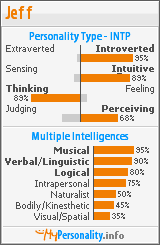Below is the letter to the editor of the Student Newspaper, which was published just this afternoon:
Dear Editor,
I began reading a poster advertising the I.S. Conference quite literally a matter of seconds after it was posted outside the admissions office. As soon as I read it, my curiosity was piqued, for two reasons: first, because the conference would be addressing a subject which could not fail to provoke lively, productive and interesting debate, namely Alberta’s Oil Sands. The second reason was a single unassuming phrase on the poster, whose brevity betrayed its significance.
The poster’s description of the conference included the phrase “is [Alberta oil] ‘ethical oil’, as some have claimed...?” Perhaps this means little to my fellow students, so I will explain. Ethical Oil is the title of a book written by conservative pundit Ezra Levant, and published just last year. In it, Levant makes the case that oil from Alberta oil sands, while far from being perfect, is displacing, barrel by barrel, oil from countries such as Saudi Arabia, Nigeria, Venezuela and Iran (to name only a few) – countries run by thieves, murderous dictators and fascists; countries who care little for democracy, peace or human rights, much less the environment. Thus, to slow oil sands production would actually be doing a great disservice to the world, by allowing those countries’ governments to continue financing their inhumane regimes by meeting the billions-of-dollars-worth of extra demand for oil created by Alberta’s slowed production pace.
Love it or leave it, this simple argument is changing how the debate over the oil sands is being conducted. To give readers an idea of how influential this book has been in the few short months since its publication: both the Prime Minister and the Federal Environment Minister referenced the main arguments of the book in recent media addresses defending the oil sands. Proponents of oil sands production are laying hold of a new catchphrase – “ethical oil” – coined by Mr. Levant.
Now, given the remarkable influence of Mr. Levant’s book, and given the direct reference to the book on the poster I was reading, I was rather puzzled not to see Mr. Levant’s name appear on the list of speakers at the conference. When I asked Roy Berkenbosch to clarify this dilemma, he confirmed that Mr. Levant had not been extended an invitation. The explanation I received for this was that there simply was not enough space in the two-day conference to accommodate all speakers.
Fair enough. But is this merely a scheduling issue? This same schedule included 4 time slots allotted to professors at King’s (2 for the same professor) whom we have the opportunity to hear from every day while attending school. I don’t mean to disrespect our wonderful professors, all of whom gave us poignant insight. But, then again, we receive their insight daily – would it have been unreasonable to sacrifice time listening to our professors, which could very easily have been made up at some other juncture, to listen to someone else?
What is even more telling to me is that anti-oilsands author and journalist Andrew Nikiforuk was not only invited to speak to us, but was given two 45-minute time slots. Now, Mr. Nikiforuk is an important and influential voice in his own right, and his book Tar Sands certainly merits him an opportunity to speak at the conference. Yet it begs the question – what logical reason could there be for extending a double invitation to a nationally-bestselling author and journalist who writes a book opposing the oil sands, while neglecting to extend an invitation of any kind to a nationally-bestselling author and journalist who writes a book supporting the oil sands, which has now become the crux of the federal government’s argument for the oil sands? What a simple way to promote balanced discussion (as we were repeatedly told the purpose of the conference was) – two men with virtually identical credentials taking two opposing views!
To make matters worse, Mr. Nikiforuk, and later the NDP’s Federal Environment Critic, Linda Duncan, both directly challenged Ezra Levant’s arguments in their own addresses to us. (Actually, while Linda Duncan challenged his arguments, Mr. Nikiforuk saw fit only to throw out an unsupported accusation of Mr. Levant, and I quote, “making stuff up.” But I digress). It is an utterly remarkable paradox: Ezra Levant writes a book which is important enough to be quoted by the highest levels of our government; it is important enough that two oil sands detractors deemed it necessary to directly address its arguments in their speeches; Yet, for all that, the same book is not important enough for the author of that book to make the short list of invitees to the conference! What perverse logic rendered that conclusion? Or, a more pointed question: at what point does administration and logistics end, and censorship begin?
The idea of an Interdisciplinary Studies Conference is a noble one. But among the student body there is often a significant degree of scepticism and ambivalence towards the conferences. One reason often cited by the students is that the conferences seem “narrow” or “one-sided”. Given Mr. Levant’s absence, one can hardly blame them for these sentiments. It is hard to conduct a “balanced discussion” when a voice so significant to a current understanding of the oil sands debate is muzzled, while those who disagree with that voice are given a microphone and a platform.
In short, I consider Mr. Levant’s non-invitation to the conference, at best, a gross oversight. At worst, it is censorship. Either way, it is a failure.
Sincerely,
Jeff Godley


